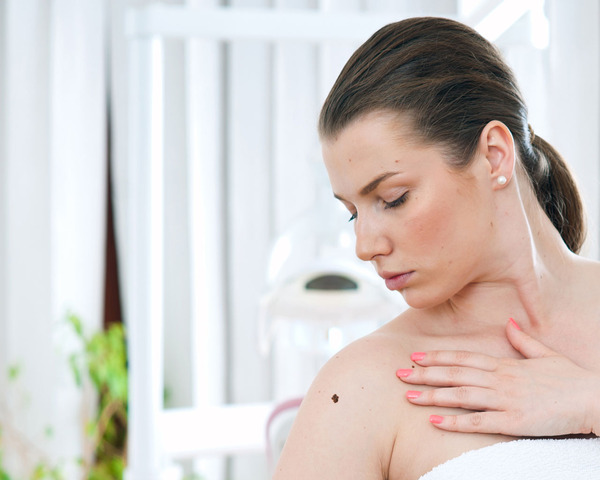Melanoma is a cancer that is usually found in the skin. It starts in the abnormal formation of melanocytes, the pigment producing cells in the skin. Because these cells will form brown or darkly pigmented lesions, melanoma can often be seen on the skin, making it particularly easy to detect in its early stages of development. If not detected, melanoma can spread to other vital organs. Once this has a occurred, the melanoma has evolved into metastatic melanoma – making it more difficult to treat and potentially fatal.
What Are the Most Common Areas on the Skin to Develop Melanoma?
“Individuals who have fair skin have lower levels of melanin – the
pigment on the skin that can absorb UVB and UVA rays, states Dr. Adam Mamelak, a board certified Dermatologist in Austin, Texas. “Individuals with fair skin have a higher chance of skin cancer.”
Melanoma can occur on any area on the skin, but certain areas have a higher propensity to form melanoma growths. In Caucasian males, there is a 50% chance of the melanoma occurring on the trunk of the body, especially on the back. For Caucasian woman, the melanoma tend to grow on the chest and legs. Asians, Hispanics, and African
-Americans tend to have a higher chance of melanoma forming on the feet and hands.
How Do I Check for Melanoma?
“In a brightly lit room, face a mirror and examine your face, lips, and the tops of your eyelids,” Dr. Mamelak suggests. “Use a small hand-held mirror to check behind your ears and your mid to lower back. You can also ask a family member to check your back. Raise both of your arms and check the armpit area, which may require you to trim armpit hair. You’re looking for any marks that are asymmetrical.”
Most melanoma formations have an irregular border. The edges might look patchy or jagged. The pigment of the melanoma can also spread into the surrounding skin. Most formations are the size of peas. Melanoma grows – the affected skin will evolve, spread, and change shape over time. If you have any suspicions about any skin markings, visit your dermatologists or doctor within a week.
CONTACT US!
To learn how to protect your skin or to have you skin evaluated for sun damage, contact us at Sanova Dermatology and set up a consultation with one of our dermatologists today!
Join Us

